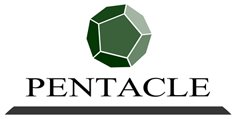If you’re involved in selling anything remotely complicated - anything that involves thoughtful consideration over an extended period by multiple stakeholders before a decision is made - you’ve probably noticed something.
The Old World “always be closing” approach to selling is increasingly irrelevant, and diminishingly effective. The harder we get sold to, the less we like it - unless we’ve acquired a taste for toying with dumb sales people. And our prospects feel the same.
It’s clear that the balance of information power has shifted from the seller to the buyer. Prospects no longer look to sales people for information, for the same reasons that they no longer attend trade shows, unless they work for local government.
They have found far better sources of insight. The internet - when combined with their formal and informal social and business networks - enables them to thoroughly research possible solutions and identify potential suppliers without the discomfort of having to speak to a sales person.
Buyers tell an old joke told about sales people. It goes “How do you know when a sales person is lying?” The inevitable answer? “When their lips are moving”. Funnily (or not) enough, sales people tell the same joke (with one obvious variation) about buyers.
So, in a world where buyers avoid the need to observe sales people’s lips moving until the last possible moment, what’s a New World vendor to do? I’d like to suggest a possible answer.
Today's prospects are influenced by a wide variety of sources, far beyond the traditional analyst and press community.
They look for recommendations from a community of trusted advisors, who can include formal and informal networks, business connections, existing vendors and many other sources - collectively referred to as their BuyerSphere.
Your prospects are building these connections, following these pathways of influence and forming opinions long before they decide to take action on an issue or reach out to a salesperson, with significant consequences for your sales process.
So how should a New World vendor respond? You can make a start by carefully exploring the BuyerSphere that surrounds your most valuable prospects and customers. Find out who they are influenced by. Learn who they trust. Find out where they naturally turn when their status quo is disturbed and they start searching for solutions.
And once you start to understand this web of influence, don’t hack through it like an Old World explorer in a pith helmet tramping their way through the undergrowth, and frightening everything within a five mile radius.
Don’t pitch, educate. Help your prospective customers learn from your experience. Encourage your existing customers and fans to help you get found in the places their peer group go looking for advice. Share your insights without expectation.
When (as it inevitably will) your generosity with your insights strikes a chord, make it easy for them to find out more. And coach your sales people to stop closing and start looking for ways to support your new prospect’s decision-making process.





.jpg)
.jpg)


















.svg/2000px-My_Wife_and_My_Mother-In-Law_(Hill).svg.png)




